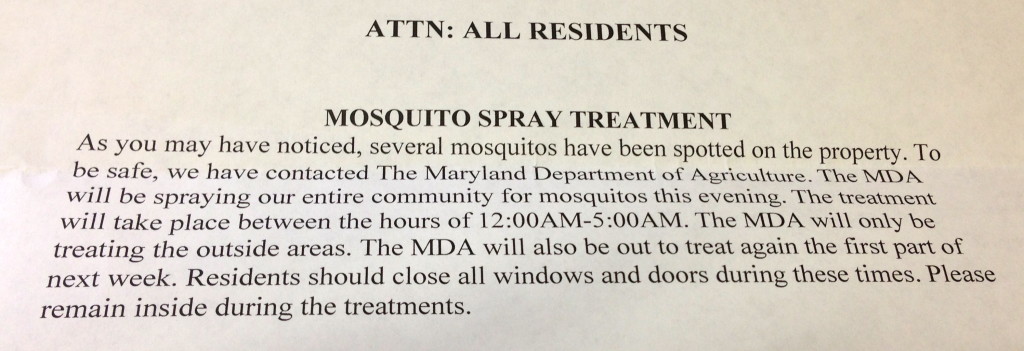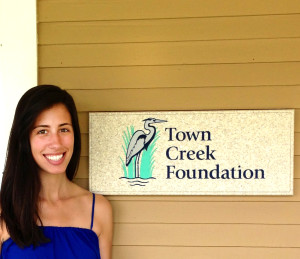I received this notice, from my apartment complex, warning residents that MDA would be spraying the property for mosquitos. And while I completely understand the seriousness of mosquito related diseases, I cannot get past the first sentence of this notice. The property manager wrote as if mosquitos are large enough, and rare enough, for people to notice a mosquito trying to work its way onto the property. Although this notice was quite amusing, it reminded me of the threats pesticides pose to our health. There is obviously a reason that mosquito spraying took place between 12am and 5am and there is certainly a reason they warned residents to close all windows and doors and remain inside. These substances are meant to kill. It may be intended for insects, but these pesticides and insecticides are still toxic.
It is one thing to know about the impending mosquito treatment, but it is quite another to know exactly what the complex was treated with. Who knows what else is applied to the lawns, gardens, and farm fields in our neighborhood? Pesticide use transparency is imperative. These pesticides are not being sprayed in enclosed facilities in a structure where only the applicator is exposed. The public has a right to know what they are being exposed to and the potential risks associated with exposure.
The Maryland Pesticide Network, supported by the environmental community, worked vehemently throughout the 2013 Legislative Session to pass a pesticide reporting bill. The bill was moved to summer study where the appointed workgroup will provide recommendations on the need for a pesticide use database.
Pesticide exposure has been linked to chronic diseases such as asthma, cancer, and Parkinson’s disease. With these health impacts do we really want industry representatives to win the argument that pesticide regulations are just fine? I don’t know about you, but I am pretty sure I do not want to put my health in the hands of an industry representative who is focused on their company’s bottom line.
Ruth Berlin, Director of the Maryland Pesticide Network (MPN), wrote a great blog on the pesticide workgroup, which was posted on MomsRising. If you are interested in learning more, MPN’s website is packed with incredibly useful information!

